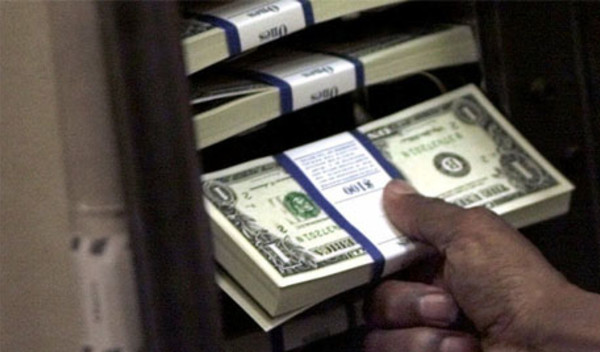

On September 22 1985 at the Plaza Hotel, New York, the G5 nations (Japan, France, West Germany, the UK and the US) signed an agreement to devalue the US dollar – known as the Plaza Accord.
Between 1980 and 1985, the dollar index had appreciated by almost 78 per cent as the Federal Reserve embarked on a period of interest rate rises to try to stem the growth rate of money supply and in turn suppress inflation which had reached 13.5 per cent by 1980.
This monetary policy coincided with the US economy facing considerable challenges as it slumped into recession, with unemployment rates the highest since the Great Depression and the recessionary landscape contributing to a number of bank failures. By the end of 1982, the Federal Deposit Insurance Company had spent $870m (£615m) on keeping banks afloat.
And so with the Plaza Accord agreement in place, the concerted effort of world central banks, and $10bn later (an amount today that seems largely irrelevant), the dollar index fell by 44 per cent and depreciated against the Japanese yen by a hearty 54 per cent.
Despite the signing of the Louvre Accord in 1987 to halt the decline of the dollar, the sizeable consequences of the Plaza agreement had been set in motion.
Such consequences have been laid out by those far more articulate than myself, but the summary is that the Japanese economy never recovered. It ultimately led to the boom and bust of the late 1980s and 90s.
The latest chapter in the Japanese obituary is the Bank of Japan’s pursuit of a negative interest rate policy (NIRP). The European Central Bank did similar 18 months ago. Many argue it is too early to tell if it is working. Which in short means it is not working.
On March 1 2016 Japan (the most heavily indebted G7 nation) sold a new 10-year bond with a negative yield for the first time. A landmark occasion not necessarily to be celebrated.
It is perhaps just a matter of time before Germany does the same. Which will be of little surprise given that one third of all eurozone government debt was already in negative yield territory by the end of 2015.
In the current climate, many economies appear content to intervene in their currency market as and when it suits them, explicitly or otherwise. We therefore question whether the days of coordinated central bank policy in the vein of the Plaza Accord are behind us. This time, the element of ‘surprise’, such as the BoJ’s pursuit of NIRP, is the future.
Inevitably, for every currency debasement, there will be a consequence that is not immediately apparent. As Volcker also remarked in 1985: “When you start to devalue… you’d better watch out… it’s hard to know where it ends.”
James Sullivan is investment director and senior fund manager at Coram Asset Management



